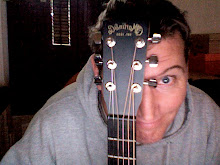The first day of real campaigning, and if you're a party leader it's a day to be seen getting out of an expensive form of transport that shows you're in a hurry to visit every hamlet the length and bredth of the country.
Paul Vallelly in The Independent sums up the jet-setting and pseudo name-calling, and warns that over the next thirty days, especially if the polls continue to be as tight as they are, it will only get more personal.
Michael Howard attacked Labour's "smirking politics" but luckily wasn't on Tyneside when he did so, while the prime minister sent a five-page handwritten letter to Daily Mirror readers telling them why they should vote Labour.
Charles Kennedy - fresh from a poll showing him with the most favourable rating of the three main party leaders - got a further boost when Labour's candidate in Ribble Valley defected to the Lib Dems.
But regardless of whatever image the leaders want to send, The Times is right on the mark, as it concentrates on the "hidden election", exploring how - just as in last year's US presidential contest, where the outcome rested on a relatively small number of counties in key battleground states - voters in specific target constituencies will be bombarded with election paraphernalia and big name politicians, while those in safe seats one way or another might have a hard time even realising the election is on.
Michael Howard has told friends in recent weeks that the "people who matter" may number just 838,000 — less than 2 per cent of voters. If they can be persuaded to switch from Labour in 165 marginals, he says, the Tories would win an overall majority, the paper says.
Also in its pages, Simon Jenkins believes the Lib Dems might have the most to gain - morally, if not electorally - from a tactical shake-out. He writes:
As in American presidential campaigns, local people in "swing seats" must be made to feel special. Spotlights must be turned on them. They should be alerted to the role their constituency might play in the wider national drama. While the Tories must lower the temperature and "generate apathy", the Liberal Democrats must get sophisticated. They must tactically vote their man into power.
And talking of big names, Sean Connery has recorded a voicemail message on behalf of the Scottish National Party, which is to be delivered to half a million homes in Scotland.
The government, meanwhile, said it would spend an extra £10m ensuring that postal voting was free from fraud, in response to the Birmingham poll-rigging verdict of the other day.
In the view from abroad, the Washington Post's report on the start of the campaign says it "will test a volatile electorate's judgment of the Iraq war", while the New York Times says:
Another big challenge for Mr. Blair is to overcome voter apathy after two elections that gave him landslide majorities in the eight years since he first won power in 1997. To do that, he suggested Tuesday, he will embark on a personal campaign to try to restore the inspirational aura that surrounded his first few years as prime minister.


0 Comments:
Post a Comment
<< Home